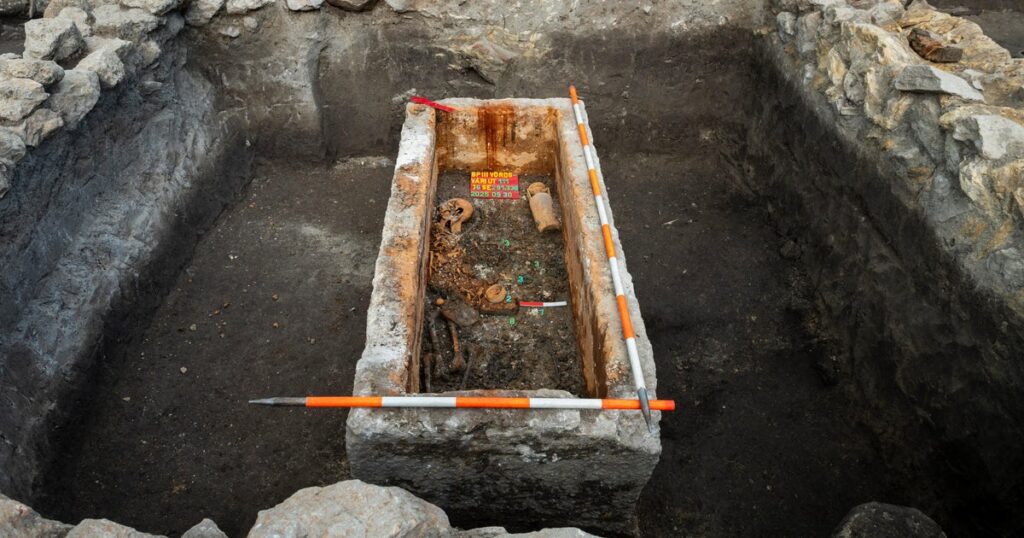A recently unearthed Roman sarcophagus in Budapest has provided a fascinating glimpse into the life of a young woman from 1,700 years ago. Discovered by Budapest History Museum archaeologists in the Óbuda district, the sealed limestone coffin remained untouched for centuries, secured with metal clamps and molten lead. Inside, they found a complete skeleton accompanied by numerous artifacts, including two intact glass vessels, a bronze statue, and 140 coins.
Archaeologist Gabriela Fenies noted the rarity of the sealed tomb, highlighting the care with which the woman was interred. Items within the sarcophagus suggest she was from a higher social status, reflecting the affection of her relatives who buried her. The tomb’s intact condition contrasts with nearby burial sites, and ongoing anthropological studies aim to reveal more about the woman’s age and background. The discovery not only holds scientific significance but also evokes a profound emotional connection to the past, as reflected in Fenies’s remarks about the mourning felt by her family.
Source link


